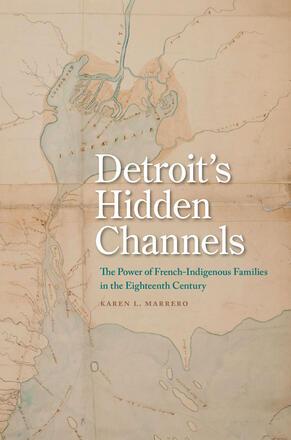
Detroit's Hidden Channels
The Power of French-Indigenous Families in the Eighteenth Century
Description
French-Indigenous families were a central force in shaping Detroit’s history. "Detroit’s Hidden Channels: The Power of French-Indigenous Families in the Eighteenth Century" examines the role of these kinship networks in Detroit’s development as a site of singular political and economic importance in the continental interior. Situated where Anishinaabe, Wendat, Myaamia, and later French communities were established and where the system of waterways linking the Atlantic Ocean to the Gulf of Mexico narrowed, Detroit’s location was its primary attribute.
While the French state viewed Detroit as a decaying site of illegal activities, the influence of the French-Indigenous networks grew as members diverted imperial resources to bolster an alternative configuration of power relations that crossed Indigenous and Euro-American nations. Women furthered commerce by navigating a multitude of gender norms of their nations, allowing them to defy the state that sought to control them by holding them to European ideals of womanhood.
By the mid-eighteenth century, French-Indigenous families had become so powerful, incoming British traders and imperial officials courted their favour. These families would maintain that power as the British imperial presence splintered on the eve of the American Revolution.
Reviews
“Marrero is to be commended for overcoming difficult historical problems by a thoughtful and insightful use of language and geography. Her reintegration of genealogy into ‘standard history’ is an excellent contribution and one which brings her work to life.”
- William Newbigging